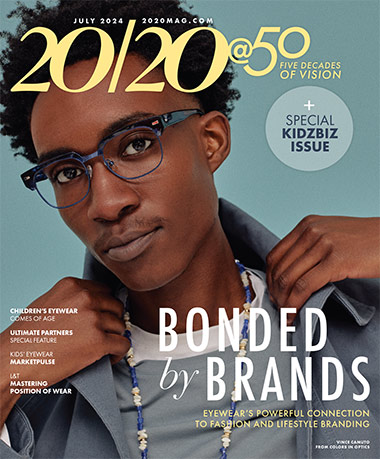By Jonathan Winnegrad, ABO-AC, NCLE-AC

To my friend who's willing to spend $40 on Taco Bell delivery through DoorDash while sporting their new $1,200 iPhone, I'd like to humbly suggest that eyeglasses are not as expensive as they might believe. Lately, I've encountered plenty of opinions, along with articles and blogs, claiming that eye care providers are overcharging for eyeglasses. It seems there's a sizable faction convinced that eyeglasses are grossly overpriced.
Before debunking these notions, it's important to admit that, as eyecare professionals, we bear some responsibility for perpetuating this well-intended misinformation. We may have become so engrossed in brands, key performance indicators (KPIs), and catering to patients wary of sales pitches that we've overlooked showcasing the true value of the eyewear that significantly enhances their vision. If we, as Opticians, merely act as order-takers in the eye care realm, people will naturally expect fast-food-like prices.
For those who truly know me, they'd attest to my frugality. Recently, my daughters begged me to buy them name-brand Oreo cookies for a sleepover, fearing embarrassment over my generic store-brand cookies. I relented. However, I have no qualms about spending money on things that enhance the quality of life for me or my family. If you regard eyewear as equivalent to generic sandwich cookies, it's no wonder you'd aim for the cheapest option and label everything else as exorbitant.
Consider this: How essential is your vision? How crucial is your family's eyesight? Our vision is as vital as any other aspect of our existence on this planet. I, for one, prefer to experience everything in crisp high-definition rather than a blurred, distorted version of reality. The general public may not be well-versed in chromatic aberration, index of refraction, lens corridors, or lens surfacing processes, but we, as opticians, are. What if, instead of dreading selling to customers, we embraced our role as guardians of a universe full of optical wonders? It's our responsibility to educate our clients on the available options and why they need them. You might be able to help a grandmother with macular degeneration see her grandchildren more clearly or spare an accountant from debilitating migraines simply by guiding them toward the right eyewear. If you don't communicate these possibilities, they'll never realize the enhanced quality of life they could enjoy.
I acknowledge that not everyone can afford high-end eyewear from a premium practice. However, many people who think they can't afford it might reconsider if they understood the value it could bring to their lives. Once again, it's our role as opticians to convey this message. As humans, when we decide to take up a new activity like swimming, we don't settle for dime-store goggles; we opt for those endorsed by athletes like Michael Phelps, even if they cost significantly more. Regrettably, two weeks later, those goggles often end up collecting dust in a drawer. How much more would people invest in lens technology and quality eyewear if they knew why it's crucial? Failing to inform your patients about what could enhance their lives is a significant omission in the world of optics.










